Introduction
Printed Circuit Board (PCB) assembly is a crucial aspect of electronic product manufacturing. For start-ups and small businesses, choosing the right PCB Assembly approach can significantly impact product quality, time-to-market, and overall costs. Full turnkey PCB assembly offers a comprehensive solution that addresses the unique needs of these companies, providing numerous advantages over other assembly methods.
In this article, we will explore the reasons why start-ups and small businesses should opt for full turnkey PCB assembly, including cost-effectiveness, streamlined processes, quality assurance, and more. By understanding these benefits, companies can make informed decisions about their PCB assembly strategy and set themselves up for success in the competitive electronics industry.
What is Full Turnkey PCB Assembly?
Full turnkey PCB assembly is a comprehensive service provided by electronic manufacturing services (EMS) companies. It encompasses the entire PCB assembly process, from component sourcing and procurement to PCB fabrication, assembly, testing, and packaging. In a full turnkey approach, the EMS provider takes complete responsibility for managing the supply chain, ensuring component availability, and delivering fully assembled and tested PCBs to the client.
Key aspects of full turnkey PCB assembly include:
- Component sourcing and procurement
- PCB fabrication
- Component placement and soldering
- In-circuit testing (ICT) and functional testing
- Final assembly and packaging
- Quality control and inspection
By outsourcing the entire PCB assembly process to a single EMS provider, start-ups and small businesses can focus on their core competencies, such as product design and marketing, while leaving the manufacturing complexities to the experts.
Benefits of Full Turnkey PCB Assembly for Start-ups and Small Businesses
Cost-Effectiveness
One of the primary reasons for choosing full turnkey PCB assembly is its cost-effectiveness. Start-ups and small businesses often operate on tight budgets, making it essential to minimize costs wherever possible. Full turnkey assembly offers several cost-saving advantages:
-
Economies of scale: EMS providers have established relationships with component suppliers and can leverage their buying power to secure components at lower prices. This translates into cost savings for the client.
-
Reduced inventory costs: With full turnkey assembly, the EMS provider manages the inventory, eliminating the need for the client to invest in and maintain a large stock of components.
-
Minimized capital investment: Start-ups and small businesses can avoid the high costs associated with setting up and maintaining an in-house PCB assembly line, including equipment, labor, and facility expenses.
-
Optimized design for manufacturability (DFM): EMS providers offer DFM expertise, helping clients optimize their PCB designs for cost-effective manufacturing. This can lead to reduced component counts, improved yields, and lower overall costs.
| Cost Factor | In-House Assembly | Full Turnkey Assembly |
|---|---|---|
| Equipment | High investment | No investment |
| Labor | High fixed costs | Variable costs |
| Inventory | High carrying costs | No carrying costs |
| Facility | Significant overhead | No overhead |
Streamlined Processes and Faster Time-to-Market
Full turnkey PCB assembly streamlines the entire manufacturing process, enabling start-ups and small businesses to bring their products to market faster. Key advantages include:
-
Single point of contact: With full turnkey assembly, clients have a single point of contact for all aspects of PCB manufacturing. This simplifies communication and project management, reducing the risk of delays and misunderstandings.
-
Concurrent processes: EMS providers can perform various assembly stages concurrently, such as component sourcing and PCB fabrication, which reduces overall lead times.
-
Expertise and efficiency: EMS providers have the expertise, equipment, and processes in place to assemble PCBs efficiently. This translates into shorter production cycles and faster time-to-market for the client.
-
Scalability: Full turnkey assembly allows start-ups and small businesses to scale their production quickly and easily, without the need to invest in additional equipment or personnel.
| Process Stage | In-House Assembly | Full Turnkey Assembly |
|---|---|---|
| Component Sourcing | Time-consuming | Handled by EMS provider |
| PCB Fabrication | Outsourced separately | Integrated with assembly |
| Assembly | Limited by in-house capacity | Scalable and efficient |
| Testing | Limited capabilities | Comprehensive testing |
Quality Assurance and Reliability
Full turnkey PCB assembly providers adhere to strict quality standards and employ rigorous testing procedures to ensure the reliability of the assembled PCBs. This is particularly important for start-ups and small businesses, as product quality and reliability can make or break their reputation in the market.
Key quality assurance aspects of full turnkey assembly include:
-
IPC standards: EMS providers follow IPC standards for PCB assembly, ensuring consistent quality and reliability across all products.
-
Automated inspection: Full turnkey assembly lines incorporate automated optical inspection (AOI) and X-ray inspection (AXI) to detect and prevent defects.
-
Comprehensive testing: EMS providers perform in-circuit testing (ICT) and functional testing to verify the performance and functionality of the assembled PCBs.
-
Traceability: Full turnkey assembly providers maintain detailed records of the manufacturing process, enabling traceability and facilitating root cause analysis in case of issues.
| Quality Aspect | In-House Assembly | Full Turnkey Assembly |
|---|---|---|
| IPC Standards | Dependent on internal processes | Strictly followed |
| Inspection | Manual, time-consuming | Automated, efficient |
| Testing | Limited capabilities | Comprehensive |
| Traceability | Challenging to maintain | Well-established |
Access to Expertise and Advanced Technologies
Start-ups and small businesses often lack the in-house expertise and resources to stay up-to-date with the latest PCB assembly technologies and best practices. By partnering with a full turnkey assembly provider, they gain access to a wealth of knowledge and advanced manufacturing capabilities.
Benefits of accessing expertise and advanced technologies include:
-
Design support: EMS providers offer design support services, helping clients optimize their PCB designs for manufacturability, reliability, and cost-effectiveness.
-
Advanced assembly techniques: Full turnkey assembly providers invest in state-of-the-art equipment and technologies, such as surface mount technology (SMT), ball grid array (BGA) placement, and reflow soldering, ensuring high-quality assembly for complex designs.
-
Material selection guidance: EMS providers have extensive knowledge of PCB materials and components, helping clients select the most suitable options for their specific applications.
-
Regulatory compliance: Full turnkey assembly providers stay current with international regulations and standards, such as RoHS and REACH, ensuring that the assembled PCBs comply with these requirements.
| Expertise Area | In-House Assembly | Full Turnkey Assembly |
|---|---|---|
| Design Support | Limited | Extensive |
| Assembly Techniques | Basic | Advanced |
| Material Selection | Limited knowledge | Extensive knowledge |
| Regulatory Compliance | Challenging to keep up | Well-versed |
Risk Mitigation and Supply Chain Management
Full turnkey PCB assembly providers take on the responsibility of managing the supply chain and mitigating risks associated with component availability, quality, and lead times. This is particularly beneficial for start-ups and small businesses that may not have the resources or expertise to handle these challenges effectively.
Key risk mitigation and supply chain management benefits include:
-
Component availability: EMS providers have established relationships with multiple suppliers, ensuring a stable supply of components and minimizing the risk of shortages or obsolescence.
-
Alternate sourcing: Full turnkey assembly providers proactively identify and qualify alternate sources for critical components, reducing the risk of supply chain disruptions.
-
Quality control: EMS providers implement strict quality control measures for incoming components, including visual inspection, functional testing, and counterfeit detection, ensuring that only high-quality components are used in the assembly process.
-
Inventory management: Full turnkey assembly providers optimize inventory levels based on the client’s production requirements, minimizing the risk of excess inventory or stock-outs.
| Risk Factor | In-House Assembly | Full Turnkey Assembly |
|---|---|---|
| Component Availability | High risk | Managed by EMS provider |
| Alternate Sourcing | Limited | Proactively identified |
| Component Quality | Dependent on internal QC | Strict QC measures |
| Inventory Management | Challenging | Optimized by EMS provider |

FAQ
1. What is the minimum order quantity (MOQ) for full turnkey PCB assembly?
MOQs for full turnkey PCB assembly vary depending on the EMS provider and the complexity of the PCB design. Some providers offer low MOQs, making it accessible for start-ups and small businesses with limited production requirements. It is best to discuss your specific needs with potential EMS partners to determine their MOQ policies.
2. How long does the full turnkey PCB assembly process typically take?
The lead time for full turnkey PCB assembly depends on various factors, such as the complexity of the PCB design, component availability, and the EMS provider’s workload. Typical lead times range from 2-8 weeks, but expedited services may be available for time-sensitive projects. Providing complete and accurate design files and maintaining open communication with your EMS partner can help streamline the process and minimize delays.
3. Can full turnkey PCB assembly accommodate both prototype and high-volume production?
Yes, most full turnkey PCB assembly providers offer services for both prototype and high-volume production. This flexibility allows start-ups and small businesses to partner with a single EMS provider throughout the entire product lifecycle, from initial prototyping to mass production. As your production requirements grow, your EMS partner can scale their services to meet your needs.
4. How can I ensure the quality and reliability of the assembled PCBs?
To ensure the quality and reliability of your assembled PCBs, choose a reputable full turnkey assembly provider that adheres to industry standards, such as IPC. Ask about their quality control processes, testing procedures, and certifications. Additionally, provide clear and comprehensive design files, including a detailed bill of materials (BOM) and assembly instructions. Regularly communicate with your EMS partner and consider visiting their facility to assess their capabilities firsthand.
5. What should I look for when selecting a full turnkey PCB assembly provider?
When selecting a full turnkey PCB assembly provider, consider the following factors:
- Technical capabilities and experience
- Quality control processes and certifications
- Turnaround times and flexibility
- Communication and customer support
- Pricing and MOQ policies
- Location and logistics
- References and reputation in the industry
Take the time to research and compare multiple EMS providers to find the one that best aligns with your business needs and goals.
Conclusion
Full turnkey PCB assembly offers numerous benefits for start-ups and small businesses, including cost-effectiveness, streamlined processes, faster time-to-market, quality assurance, access to expertise and advanced technologies, and risk mitigation. By partnering with a reputable EMS provider, these companies can focus on their core competencies while ensuring the successful manufacture of their electronic products.
When selecting a full turnkey PCB assembly provider, start-ups and small businesses should carefully consider factors such as technical capabilities, quality control, turnaround times, communication, pricing, and reputation. By making an informed decision and establishing a strong partnership with their chosen EMS provider, these companies can set themselves up for success in the competitive electronics industry.
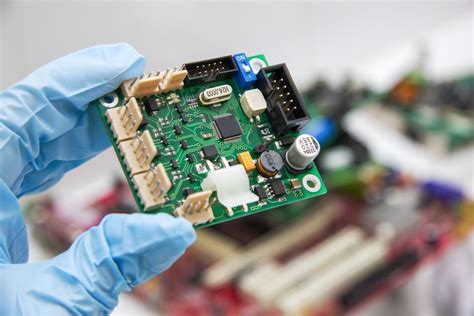
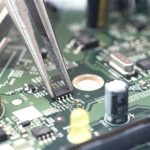
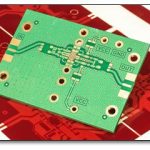
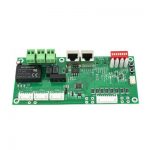
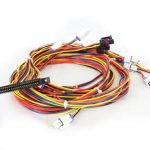
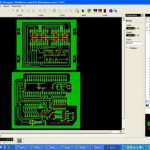
Leave a Reply